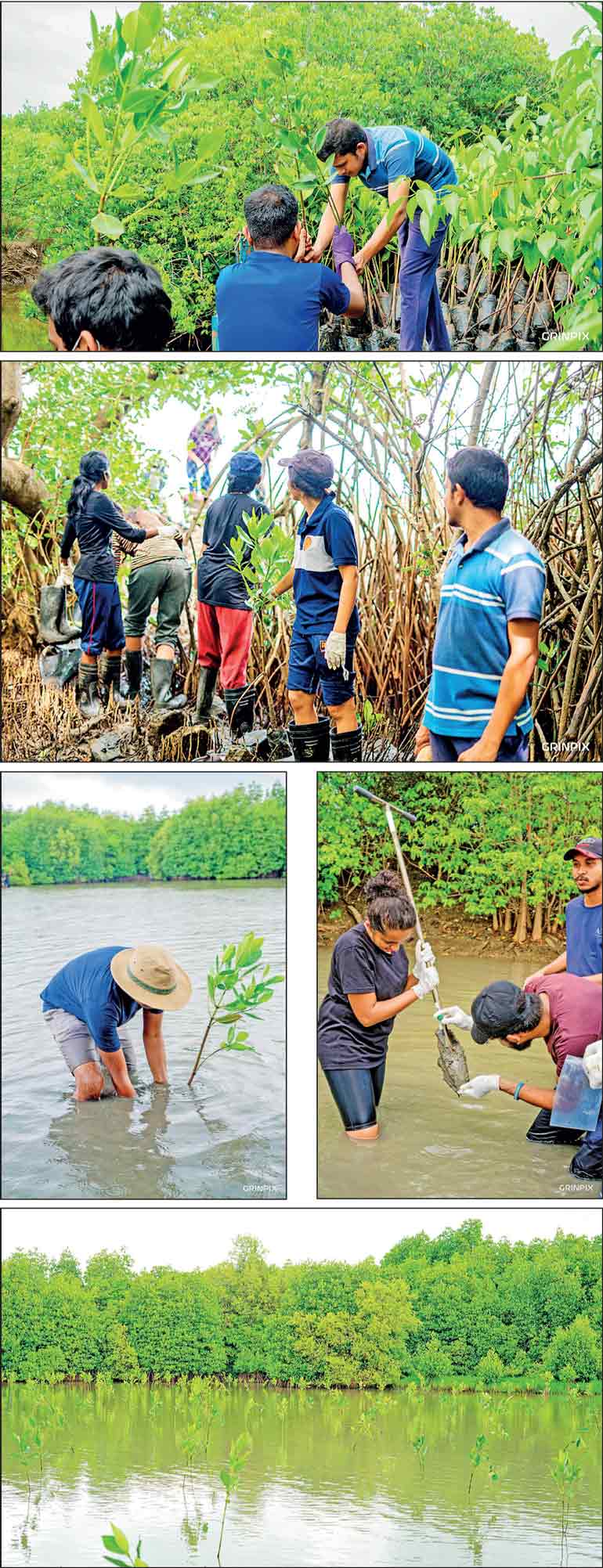Monday Feb 23, 2026
Monday Feb 23, 2026
Wednesday, 14 December 2022 00:00 - - {{hitsCtrl.values.hits}}

Norlanka, together with the Environmental Conservation and Management Society of University of Kelaniya recently concluded Phase 1 of a mangrove restoration project in the coastal area of Chilaw. Over 100 participants from Norlanka and the University joined this restoration project.
Mangrove ecosystems of Sri Lanka are rapidly degrading due to the pollution caused by various human activities. This project aims to restore mangrove ecosystems in selected areas of the Sri Lankan coast while raising awareness on their importance. During the initial stages, a series of webinars were conducted by the University to create awareness about the project.
Under Phase 1 of the project, 650 mangrove plants were restored with the help of the volunteers. Phase 2 of the project involves regular monitoring of the changes in the restored mangrove cover. During the first two years, regular monitoring of growing seedlings and maintenance work needs to be carried out to ensure the plants grow properly.
Mangroves protect the seashores from erosion and are the first line of defence for coastal communities from storms and provide homes for various animal species. They store 3-5 times more carbon per hectare than tropical rainforests. Through their dense network of roots and surrounding vegetation, mangroves filter and help to maintain water quality. They also provide livelihood for communities through fishing and eco-tourism.
Restoring 650 mangrove plants will have a total carbon sequestration of 7,995 kg per year. Throughout the lifespan of the 650 mangrove plants, 199,875 kg of CO2 can be removed.
Norlanka Chief Innovation Officer Buddhi Paranamana said: “The global apparel industry has a significant effect on the environment and therefore we need to always strive to create an industry that is held accountable. Norlanka is a company that firmly believes in this and that is why, along with our many other ESG efforts, we have invested in reforestation programs.
“We have a set a goal of becoming carbon neutral by the year 2025, and this mangrove restoration project with the collaboration of University of Kelaniya is just one of many initiatives that we’ve commenced to ensure achieving sustainable excellence.”